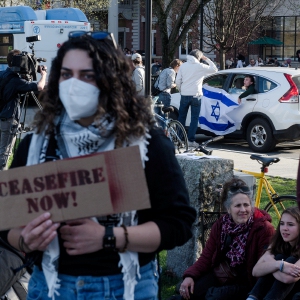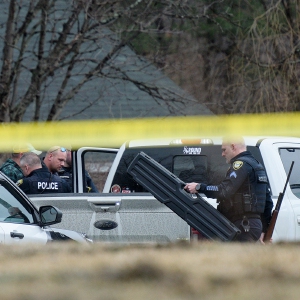Stripping back local control of school budgets? Phil Scott says it is on the table.
|
Published: 03-10-2024 8:00 PM
Modified: 03-10-2024 8:01 PM |
MONTPELIER — Gov. Phil Scott thinks it might be time to wrest some school spending control away from the local level.
“That’s not going to be popular. My just saying that probably isn’t popular, but I think it has to be on the table,” Scott said at his weekly press conference on Thursday.
Scott’s suggestion came after Vermont voters as of Thursday rejected 30 school budgets on Town Meeting Day in the face of average projected education tax increases of 19%. The proportion of defeats — almost a third of the 95 budgets reporting results this week — is the highest rate of no votes in at least a decade, according to the Vermont Superintendents Association.
A Berlin resident, Scott said he voted no on his local budget, the Washington Central Unified Union School District, which was among those shot down.
Prior to this week’s budget rejections, education spending in Vermont was projected to increase by about $230 million, or 13.5% year over year. Health care costs, construction, special education, disappearing federal money and increased salaries are all contributing significantly, according to state data.
“Given how rare these no votes are, this should be a wake-up call for everyone,” Scott said, focusing his opening remarks on Vermont’s near highest-in-the-country school spending and “middle of the pack” test scores.
In a familiar refrain, he wagged his finger at the Legislature for ignoring his cost containment ideas, such as increasing staff-to-student ratios, and adjusting the income-sensitized component of Vermont’s education property tax.
Some of the governor’s education suggestions have come to fruition, though.
Article continues after...
Yesterday's Most Read Articles
 Lebanon moves forward with plans for employee housing
Lebanon moves forward with plans for employee housing
 At Dartmouth, hundreds protest ongoing war in Gaza and express support for academic freedom
At Dartmouth, hundreds protest ongoing war in Gaza and express support for academic freedom
 Dartmouth moves swiftly to stymie demonstration, leads to 90 arrests
Dartmouth moves swiftly to stymie demonstration, leads to 90 arrests
 Man tied to Lebanon school lockdowns pleads not guilty to charges
Man tied to Lebanon school lockdowns pleads not guilty to charges
His administration pushed for switching the way the state funds special education, a change his team projected would save millions. Lawmakers signed off on the idea in 2018, but the switch was ultimately delayed when an advisory group helping to oversee it said the Vermont Agency of Education hadn’t done enough to prepare for the change.
The agency rejected that assessment of its work, and the change has since occurred. In the meantime, special education costs are expected to be up more than $100 million since the 2022 fiscal year, according to the agency.
Scott also advocated for negotiating teacher health care contracts on a statewide level, a policy the Legislature approved in 2018 — though not how the administration wanted. A particular frustration was that lawmakers gave the teachers union and management equal bargaining representation, and the administration wanted more health care contract related strictures set in statute.
“They didn’t do it the way we’d asked,” Scott said Thursday, referencing lawmakers. “They did it a different way, and I think it’s actually creating more harm than good.”
School staff health care costs are expected to increase almost $48 million this budget season, according to Vermont’s teachers union.
Now, facing what he called a possible record rate of rejected school budgets, Scott suggested it might be time to completely reimagine Vermont’s education funding system.
“There’s an evolution of all these funding formulas, and this might have reached its life expectancy,” the governor said.
A Scott spokesperson later told VTDigger that Scott would consider an income-based education funding model, an idea that some lawmakers studied in depth in 2022, but only if it came with “structural reform.”
School consolidation, Scott said, is part of the answer. But whatever lawmakers, school boards and voters work out this year to immediately reduce spending, the governor said he doesn’t expect “to solve this $200 million problem.”
And asked what he would consider an “acceptable” property tax increase, Scott pointed out that he previously vetoed budgets due to a 3% rise.
“My tolerance,” he said, “is pretty low.”

 Colby-Sawyer names interim president
Colby-Sawyer names interim president
